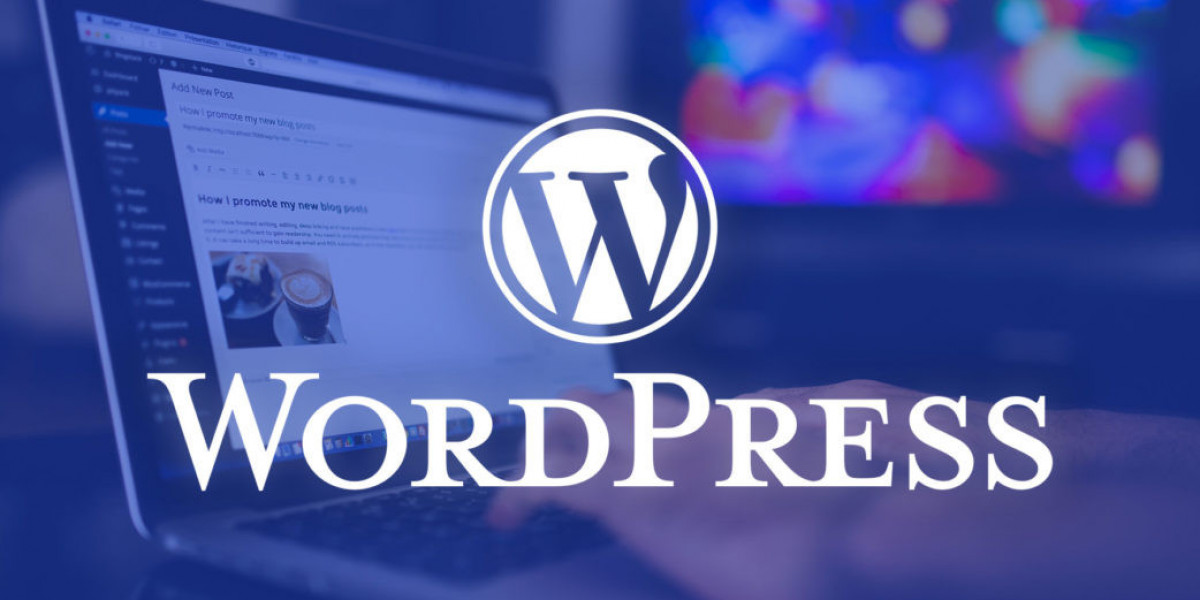The success of a WordPress website largely depends on the quality of the hosting you choose. In a world where speed, security, and uptime are paramount, managed hosting for WordPress has become an increasingly popular option. But what exactly is managed hosting, and why should you be interested? In this article, we will explore the numerous advantages of using managed hosting for WordPress, helping you make an informed decision for your web project.
What is Managed Hosting for WordPress?
Managed hosting for WordPress is a type of web hosting service that is specifically designed to optimize the performance and security of WordPress sites. Unlike traditional shared hosting, where multiple sites share the same resources, managed hosting offers a dedicated and optimized environment for WordPress. This includes features like automatic updates, regular backups, and specialized technical support.
Advantages of Managed Hosting for WordPress
1. Optimized Performance
One of the primary advantages of managed hosting for WordPress is its superior performance. This type of hosting uses servers optimized specifically for WordPress, meaning your site can load faster. Managed hosting providers often implement advanced technologies like server-level caching and content delivery networks (CDNs) to enhance the loading speed of your pages. A faster website not only improves user experience but is also a significant factor for SEO.
2. Enhanced Security
Security is a fundamental concern for any website owner. With managed hosting, you get advanced security measures that are crucial for protecting your WordPress site. This includes firewalls, continuous malware monitoring, and automatic security updates. Managed hosting providers typically also offer free SSL certificates, ensuring that the information transmitted between your site and its visitors is encrypted.
3. Specialized Support
Another significant benefit of managed hosting is access to specialized technical support. Support teams are made up of WordPress experts who can help you resolve technical issues specific to your site. This is particularly useful if you lack technical experience. Instead of spending hours searching for solutions on forums, you can receive direct and quick assistance.
4. Automatic Updates
Keeping your WordPress site updated is crucial for its security and performance. With managed hosting, WordPress updates and plugin updates are performed automatically, relieving you of the burden of doing it manually. This not only saves time but also reduces the risk of security vulnerabilities that can arise from outdated software.
5. Automatic Backups
Data loss is one of the biggest nightmares for any website owner. Managed hosting for WordPress typically includes regular automatic backups. This means that if something goes wrong, you can restore your site to a previous state without losing valuable information. Additionally, some providers offer the option to perform manual backups at any time.
6. Scalability
If you plan to grow your website, managed hosting is an excellent option due to its scalability. As your site gains traffic, you will need more resources. Managed hosting providers usually offer easy scaling options, allowing you to increase your capacity without experiencing downtime. This is crucial for maintaining a smooth user experience and optimal performance.
7. Stable Development Environment
Managed hosting also provides you with a stable and secure development environment. This means you can make changes and tests on your site without worrying about affecting the live version. Many providers offer staging environments where you can test new features, designs, or plugins before implementing them on your main site. This minimizes the risk of errors that could harm user experience.
8. SEO Optimization
Site performance is a critical factor for SEO, and managed hosting for WordPress is designed to enhance your site's speed and stability. A faster site not only retains visitors but also receives preferential treatment from search engines. Furthermore, improved security and automatic updates contribute to better rankings in search results.
9. Exclusive Integrations and Tools
Many managed hosting providers offer exclusive tools and functionalities that can be very beneficial for WordPress users. This may include performance analytics tools, integrations with marketing platforms, and advanced security solutions. These features enable you to manage your site more efficiently and effectively, improving your productivity.
10. Ease of Use
Managed hosting is designed to be user-friendly, even for those who are not tech-savvy. Control panels are intuitive, making it easy to manage your site. Additionally, with the assistance of specialized technical support, you can focus on what really matters: growing your business and improving your content.
Considerations When Choosing Managed Hosting for WordPress
1. Cost
Managed hosting typically comes at a higher price point compared to shared hosting. However, when considering the range of services and support you receive, many users find the investment worthwhile. Assess your budget and choose a plan that meets your needs and expectations.
2. Included Resources
When comparing different managed hosting providers, be sure to review the resources included in each plan. Some may offer SSD storage, unlimited bandwidth, and other benefits that can be crucial for your site.
3. Provider Reputation
Research the reputation of the hosting provider you are considering. Read reviews and testimonials from other users to ensure you are choosing a reliable and high-quality service.
Additional Advantages of Managed Hosting for WordPress
11. User-Friendly Control Panels
Most managed hosting providers offer user-friendly control panels that make it easy to manage your WordPress site. Unlike traditional hosting, where control panels can be overwhelming, managed hosting typically provides a streamlined interface. This means that even beginners can navigate through features like domain management, file uploads, and database management without a steep learning curve.
12. Performance Monitoring
Another advantage of managed hosting is the availability of performance monitoring tools. Many providers offer dashboards that give you insights into your site’s performance, including loading times, traffic spikes, and resource usage. This information is invaluable for understanding how your site is performing and where you can make improvements. By monitoring performance, you can ensure your site remains fast and responsive, which is crucial for retaining visitors and improving SEO.
13. Local and Global Data Centers
Managed hosting providers often utilize multiple data centers across different locations. This means that your site can be hosted closer to your target audience, resulting in faster loading times. Some providers even offer options for geo-targeting, which can further enhance performance. This geographical distribution of servers also adds an extra layer of redundancy, ensuring that your site remains accessible even in case of a server failure.
14. Integrated Caching Solutions
Caching is an essential component for improving site speed, and managed hosting often includes integrated caching solutions. These tools store static versions of your pages, significantly reducing load times for repeat visitors. Unlike traditional hosting, where setting up caching can be complex, managed hosting providers simplify this process, allowing you to benefit from faster page loads without the technical hassle.
15. Staging Environments
As mentioned earlier, managed hosting typically includes staging environments, which are essential for testing changes before they go live. This allows you to experiment with new themes, plugins, or updates without risking your live site. The ability to thoroughly test new features ensures a smoother user experience and minimizes potential downtime or errors.
16. Support for E-commerce Solutions
For those looking to run an online store, managed hosting for WordPress often includes specific features tailored for e-commerce. This may involve pre-installed plugins like WooCommerce, optimized payment gateways, and enhanced security measures to protect customer data. By choosing managed hosting, you can provide a seamless shopping experience for your customers while ensuring their information is secure.
17. Cost-Effectiveness in the Long Run
While the initial investment in managed hosting may be higher than shared hosting, the long-term benefits often outweigh the costs. With improved performance, security, and reduced downtime, managed hosting can lead to higher conversion rates and customer satisfaction. Additionally, the time saved from having to manage technical aspects can be redirected towards growing your business, making it a cost-effective choice overall.
18. Built-in SEO Features
Many managed hosting providers offer built-in SEO tools to help you optimize your WordPress site for search engines. These tools may include features like automated sitemaps, meta tag management, and performance optimization tips. By having these tools readily available, you can more easily implement SEO best practices without needing additional plugins or services.
Transitioning to Managed Hosting
1. Assess Your Current Hosting Situation
Before making the switch to managed hosting, evaluate your current hosting situation. Are you experiencing slow loading times, frequent downtime, or security issues? Identifying the pain points in your existing setup can help you understand the necessity of transitioning to managed hosting.
2. Research Managed Hosting Providers
Take the time to research various managed hosting providers. Look for reviews, testimonials, and comparisons to find the best fit for your needs. Pay attention to factors such as uptime guarantees, customer support, and specific features relevant to your site.
3. Plan Your Migration
Migrating to managed hosting may require some planning. Many providers offer migration services, but it’s essential to back up your data before making the switch. Plan for potential downtime during the migration process and inform your audience if necessary.
4. Test After Migration
Once your site is migrated, conduct thorough testing to ensure everything is functioning as expected. Check for broken links, missing images, or issues with plugins. Address any concerns promptly to ensure a smooth experience for your visitors.
Conclusion
Managed hosting for WordPress offers a range of advantages that can significantly impact the performance, security, and usability of your website. From specialized technical support to automatic updates and regular backups, the features of this type of hosting make it an appealing option for website owners of all sizes.
If you are looking to maximize the performance of your WordPress site and ensure it is secure and optimized, investing in managed hosting is a smart decision. Not only will you save time and effort, but you will also be able to focus on what really matters: creating quality content and growing your audience.
If you are ready to take the next step toward more efficient and secure hosting, consider exploring options for managed WordPress hosting. Your site and your visitors will thank you.







